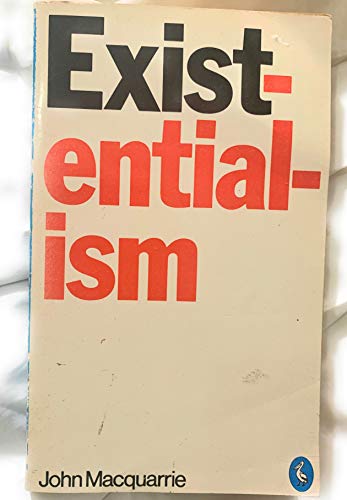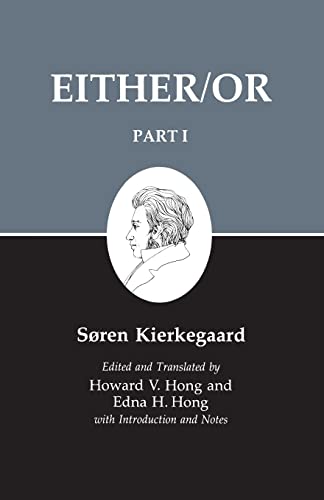
A quick crash course in existentialism! Learn some of the basics, fast!
As I like to mention in ALL posts, any links to products like books or audio formats are affilliate links and they are scattered throughout all posts.
If you purchase anything on the blog, it greatly supports me and allows me to continue to write articles to share information.
Existentialism: in a nutshell.
Existentialism is a philosophical framework that examines human existence. Mainly, existentialism focuses on how we are able to derive value from our choices in order to live an authentic life inside a world that doesn’t have any inherent meaning.
It critically examines the fundamental questions of life, meaning, and individual’s freedom to choose their own path and create some form of “Why” we live.
In short Existentialism says:
You are free!! All of the choices you make are your responsibility, and you must figure out what you think the meaning of life is.
It’s might sound fairly, laissez-faire, but I think that when you read the rest of this post and consume the accompanying media, you’ll find it’s anything BUT hands off.
I want to further explore the origins of existentialism, the role of philosophical writers in its prevalence, and especially focus on the profound impact of one key figure on its development and proliferation.
The Origins of Existentialism

Existentialism, as a distinct philosophical movement, began to take shape in the late 19th and developed fully in the early 20th centuries.
While it is challenging to pinpoint an exact founding moment, several key figures contributed to its development throughout the ages.
One of the earliest influences was the Danish philosopher Søren Kierkegaard, who emphasized the importance of individual subjectivity and the existential angst that arises from the human condition.
Kierkegaard is mostly known for his book Either/Or (which is also a GREAT Elliot Smith album)
Either/Or stands as a remarkable insight into innumerable pieces of human life that would take far too much time to do it justice in this post, I highly recommend you take time to read or listen to it wherever possible for you.
Another pivotal figure in the emergence of existentialism was Friedrich Nietzsche.
Nietzsche’s works questioned moral values and proclaimed the death of God, paving the way for a philosophy centered on human freedom and responsibility as opposed to religious idealogies.
His concept of the “Ubermensch” or the “superman” embodies the idea of creating one’s own values and living authentically.
These concepts and examinations of life have spurred countless conversations on living and the philosophical discussions surrounding what is our purpose as a society.
(If you want to read more about Nietzsche, please read this post here!)
The Role of Philosophical Writers in Existentialism
Philosophical writers have played a crucial role in popularizing existentialism and making it accessible to a wider audience.
Through their works, they have explored the intricacies of existential thought and its implications for humanity as a whole.
One peripheral, but influential writer was Albert Camus.
Although he is actually an “Absurdist” Camus has helped shaped existentialism.
Particularly of note is the novel “The Stranger” because it embodies many existential themes.
In it, the protagonist, Meursault, grapples with the absurdity of life and the indifference of the universe.
Camus’ works shed light on the human struggle for meaning in an inherently meaningless world.
While the best example of his work as an absurdist is “The Myth of Sisyphus and other essays”
Another prominent writer associated with existentialism is Fyodor Dostoevsky.
Dostoevsky is another author who deserves his own post entirely, but for now we’ll just point to one of his most remarkable pieces of writing.
In his novel “Notes from Underground,” Dostoevsky delves into the depths of human consciousness, exploring themes of alienation, despair, and the search for authenticity.
His characters confront the existential dilemmas of freedom and responsibility, leaving a lasting impact on the development of existential thought.
Notes from Underground is only one of his incredibly thought provoking and genuinely brilliant pieces, I highly encourage you to go through any of his other writings.
You will not be left bored or without serious introspection.
The same could be said of the next author, who has generated an absolutely cataclysmic amount of insight for both existentialism and absurdism by his work.
The Impact of Jean-Paul Sartre
When discussing existentialism, it is impossible to overlook the significant contributions of one man,
Jean-Paul Sartre. As one of the leading figures of the movement, Sartre’s ideas have had a unparalleled impact on its development.
Sartre’s most influential work, “Being and Nothingness,” explores the concept of “existence precedes essence.” He argues that individuals are free to define their own essence through their choices and actions. This notion of radical freedom became a cornerstone of existentialism, mainly point to the responsibility of individuals in creating their own lives.
Sartre also introduced the concept of “bad faith,” which refers to the act of denying one’s freedom and responsibility.
He believed that individuals often deceive themselves by conforming to societal expectations and avoiding the burden of choice. By exposing the dangers of bad faith, Sartre encourages individuals to embrace their freedom and live authentically.
Besides his philosophical works, Sartre’s plays, such as “No Exit” and “The Flies,” further popularized existential ideas in another brilliant medium.
Overall, Jean-Paul Sartre’s contributions to existentialism have been monumental. His ideas have shaped the movement and continue to resonate with individuals seeking to navigate the complexities of human existence.
In Closing.
Existentialism reminds us that we are responsible for shaping our own destinies.
It urges us to embrace our freedom, confront the absurdity of existence, and strive to live authentically in a world that often seems devoid of meaning.
While it may seem like the lack of meaning and value in life is more akin to Nihilism.
(Read more about Nihilism and the differences here)
It’s very much an incredibly different take on life.
Existentialism, in simple terms, is a philosophy that acknowledges our free will and the indifferent universe we live in. Existentialism’s framework lays out the idea that we are essentially blank slates from birth who create our own value through choices and must acknowledge our responsibility for our own lives.
In essence it can be surmised as a simple sentence:
We exist, therefore we must live a life that we deem acceptable and are proud of.




